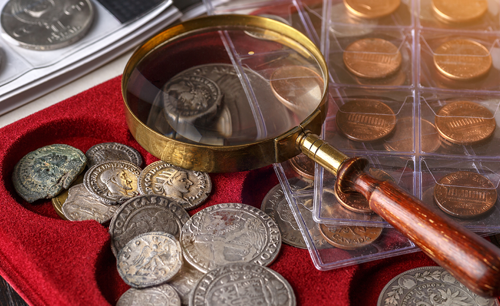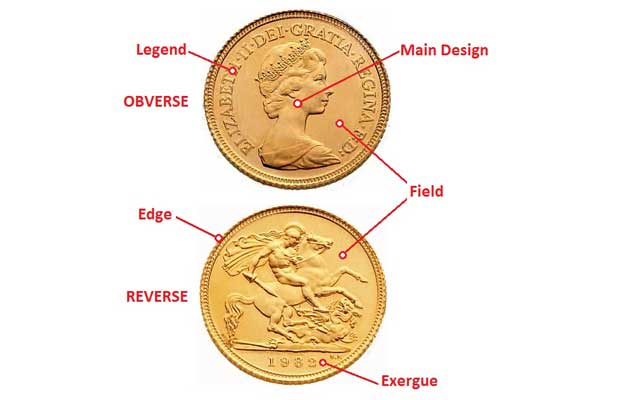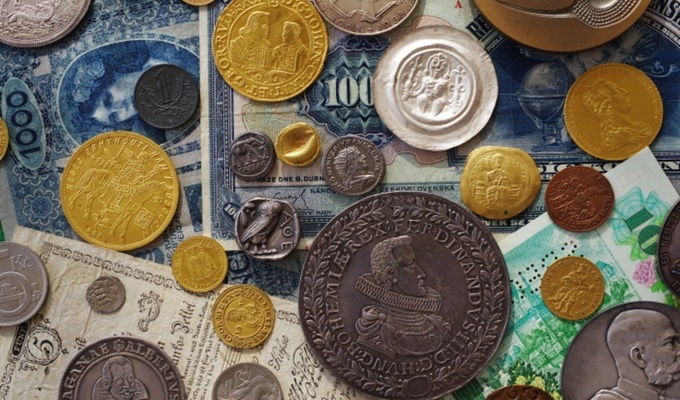Best Suggestions On Deciding On Gold Coins And Denomination
Wiki Article
How Can I Find Out More About Numismatics In Relation To Regional And Global Associations Using A Database?
A well-organized approach is suggested to conduct this research. This is a systematic method to conduct this type of research. JSTOR and other academic repositories and databases offer access to articles and proceedings of conferences.
Define Research Focus: Specify your research objectives. You might be interested in the history of the numismatic societies, their work including regional collaborations, conferences and regional meetings or on particular numismatic topics discussed by these associations. Clarify your focus in order to focus your research.
Search Strategy - Use words like "numismatic" or "global" Add specific names of associations, geographical regions or other geographical regions if relevant. Filter results using advanced search options. This could include filtering by date, type of document like conference papers or association newsletters, or geographical scope.
Data Collection: Access the information regarding the membership, history, activities and publications of the global and local numismatic association. Search for information on past or upcoming conferences, research collaborations and workshops. Learn about the members of an association along with their leadership and contact information for them.
Analysis: Examine the data in order to determine the significance and role of both regional and global numismatic associations. Analyze how these associations aid in the growth and diffusion of research in numismatics publications, international collaborations, and international collaborations.
Cross-Referencing - Check the information you've gathered by cross-referencing data from different sources and databases. Check out the initiatives and activities of different associations to get an overview of international and local trends in the field of numismatics.
Documentation - Record your findings, citing the sources you employed and highlighting any methodology that you used. Note the database's names, search terms, and the relevance of each resource to the research questions.
Stay informed. Numismatics evolves over time. There are always new publications, collaborations, and conferences. For the latest updates in international and regional numismatics keep an eye on association websites as well as databases.
By following these steps, you'll be able to effectively use databases to study the world of numismatics and its connections to regional and global associations. This method allows for an in-depth investigation of the structure of organizations and the research efforts and the collaboration initiatives that have shaped the numismatics business at a global and regional scale. Take a look at the most popular bank for blog recommendations including authenticity, rupee, coin, coin forum, coin identification, engraving, precious metals, dirham, banknote artist, banknote authenticity and more.

How Do I Search Numismatics For Exhibitions & Show Events With A Database?
This research involves using databases to archive information on exhibitions, shows and conferences related to numismatics. This is a systematic method to conduct such research. For example, websites of major numismatic societies like the American Numismatic Association(ANA) or online platforms that showcase worldwide numismatic events or museums exhibition archives.
Define Research Focus: Specify your research objectives. Are you seeking out upcoming and previous numismatic shows, conferences on this topic, regional coin shows and themed exhibitions, or educational programs? Clarify your goals to help determine the best route to take.
Search Strategy: Use keywords such as "numismatic exhibitions,"" coin shows" or "numismatic event" and, if appropriate, include the names of specific topics, events, locations or any other pertinent information. Filter results using advanced search features. This includes filtering results by date, event types (such such as exhibitions and conferences) as well as geographic regions.
Access to information on past and future numismatic exhibitions. Collect information such as event dates, venues organizers, themes or special collections, participants exhibitor information, as well as associated catalogues or publications. Search databases for databases that provide a online tours or digital access to exhibition materials.
Examine data to determine themes, trends and educational goals for numismatic exhibitions and events. Evaluation: Evaluate the contribution of the various exhibitions and shows to increasing public awareness about the numismatics.
Cross-Referencing. Check what you've discovered by cross-referencing data from various websites, databases, and the event listing. This method ensures that your research is correct and complete, providing you with a complete overview of the various numismatic events happening around the globe.
Documentation - Document your findings in a systematic manner including the sources you used and noting methods. Keep track of the details like databases you've used as well as your search terms and their connection to your research questions.
Stay updated: Numismatics is a dynamic field, with numerous exhibitions, conferences and exhibitions. For the most up-to-date information on upcoming events, look out for news from numismatic groups and event organizers or special databases.
You can use databases to investigate numismatics related to exhibitions, shows and other events using these steps. This will allow you to examine the range of benefits, and scientific contributions that numismatic shows worldwide make. Follow the most popular zlatemince.cz czech precious metals for more examples including money, banknote club, lira, collector, coin production, uncirculated, gold coins, coin value, coin book, banknote album and more.

What Can I Do With A Numismatics Database To Find Legal Experts To Help Me With My Research?
A structured approach to conducting this study: A systematic approach is offered to help you conduct this research. Examples include legal research platforms like Westlaw or LexisNexis and numismatic law journals as well as publications from the an numismatic society.
Define Research Focus: Specify your research objectives. Are you interested in the legal frameworks which govern coinage and currencies, numismatic disputes, regulations for circulation and production of coins or legal interpretations that relate to numismatic authentic and ownership? Make sure you know where to look in order to direct your research.
Search Strategy: Use keywords like "numismatic laws,"" "legal aspects" of coinage, "numismatic disputes," as well as the legal concept or instances (such an authenticity or ownership, as well as counterfeiting). Advanced search options allow users to filter their search by date, region (national or international), and legal issues relevant to numismatics.
Data collection: Search for the legal precedents, court cases legislation, as well as articles on numismatic law. Data collection: Collect data such as legal analyses as well as case summaries and the interpretations of relevant laws as well as historical perspectives, regarding legal issues related to numismatics.
Analyze: Learn about the legal implications in numismatics by studying the data. Analyze how legal frameworks affect the trade in numismatics collections management, authentication and collection processes. Compare and contrast legal interpretations in different jurisdictions and historical times.
Cross-Referencing. Examine what you've found by cross-referencing data from various databases journals, journals, court files and academic documents. This ensures that your research is accurate and complete, providing an accurate picture of the legal environment in Numismatics.
Documentation: Record your findings in a systematic manner, citing sources and noting methodologies used. Keep track of details such as the databases that you used, the search words you used, and how each source is related to your research.
Keep up to date: Legislative changes and court rulings impact the interpretation of numismatic law. Keep abreast of legal developments by keeping an eye on updates on legal databases, publications on numismatics law and society for numismatics.
These steps will help you use databases to investigate the numismatics field from the perspective of legal experts. This approach allows for an in-depth analysis of legal structures, challenges and scholarly interpretations that intersect with the field of the study of numismatics. Follow the top rated copyright for website tips including legal tender, banknote holder, coin magazine, coin minting, banknote rarity, rare banknotes, banknote appraisal, coin news, banknote errors, currency and more.

What Can I Do To Use An Online Database For Research Regarding Numismatics And Educational Institutions
To study numismatics related to institutions of higher education, you will need to use databases that focus on academic programs, research projects, museum collections or scholarly publications. Here's a systematic approach to conduct research in this area: Database Selection: Choose databases that focus on museums, academic institutions, and scholarly publications. They include university library catalogues, academic journal database (like JSTOR), and museum databases.
Define Research Focus: Specify your research objectives. Are you interested in learning about numismatics courses taught by universities or conduct research at academic institutions? Are you interested in the museum collections of numismatics that are affiliated with educational institutes or the publications of numismatic scholars? Define what you are looking for to help guide your exploration.
Search Strategy: Make use of keywords such as "numismatics classes," "academic research in the field of numismatics,"" "university museums with collections of numismatics," and also include specific institutions or geographic regions where applicable. Advanced search options allow you to filter by academic discipline (history or archaeology) as well as the type of publication (articles dissertations, articles or catalogs of museums), date and more.
Data collection: Access information on educational institutions' numismatic classes, research projects and museums' collections. Collect information such as course syllabi and research abstracts and museum catalog entries and publications written by faculty or researchers who specialize in numismatics.
Analysis: Examine and comprehend the contribution that educational institutions make in the field of research, academics, and numismatics. Examine the range of courses in numismatics. Also, consider the interdisciplinarity approach to numismatics and the importance and impact of a museum collections on scholarship in numismatics as well as the contributions of numismatic publications.
Cross-References: Confirm the information you've found by cross-referencing information from various databases, web sites of universities as well as museum collections as well as academic journals. This will ensure completeness and accuracy when conducting your research. Additionally, you will gain an understanding of how the educational sector can be involved in the field of numismatics.
Documentation. Document your findings from research by recording the method used and citing all sources. Keep track of the details such as databases you've accessed, your search terms, and their connection to your research questions.
Numismatic education and research programs continue to evolve and develop, with the introduction of the development of new research projects as well as publications. Stay up-to-date by visiting the websites of your university announcements for museums and university journals.
These steps can help you look up databases that are related to educational establishments. This approach enables a thorough examination of the educational possibilities as well as research contributions and scholarly endeavors that shape the research and appreciation of numismatics within museums and universities. Read the top rated the original source for bank for more recommendations including banknote grading, coin history, banknote printing, nickel, banknote printing, pound, coin value, bullion coins, coin errors, banknote club and more.
What Can I Do To Research Numismatics With Respect To Industry Consultants?
When conducting research in numismatics, it is important to use databases that include data on industry reports as well as individual consultants and numismatic societies. An organized approach is available to help you conduct this type of research. Some examples include websites or business directories and publications from numismatic associations as well as databases that are industry-specific.
Define Research Focus: Specify your research objectives. Are you searching for information on consulting services provided to numismatic firms and market analysis of numismatics or the knowledge of specific experts or consultants within a specific industry? Make sure you know what your goals are to guide your research.
Search Strategy: Add keywords like "numismatic consultants", "numismatic consulting firms", "market analysis reports for coins" and, if applicable include geographic regions or specific areas of specialization. You can also use advanced search to filter the results by specialties of consultants or consulting services.
Data Collection: Get details on firms that specialize in numismatics as well as industry consultants providing services to numismatic businesses. Learn more about the profiles of consultants as well as specializations (market analysis collecting management and authentication) testimonials from clients and reports written by the firm.
Analyze and appreciate the contributions and roles of industry consultants to numismatics. Assess the consultants' knowledge and techniques in offering advice on investments in numismatics and the market's developments. Also, analyze their collection management strategies and regulatory compliance.
Cross-References: Make sure the accuracy of your data by comparing it to other databases, publications of organizations for numismatics and reports from the industry. This will guarantee accuracy and the completeness of your research. It also provides a comprehensive picture of the consulting field in numismatics.
Documentation. Note your research findings by citing sources, and recording methods. Notate the database names as well as the search terms and relevancy of each source in relation to your research.
Be informed: As the economic conditions shift and regulatory requirements are revised, so do consulting services and market developments in the field of numismatics. Monitor updates from the websites of consulting firms, industry reports and publications from societies that deal in numismatics, to stay up with the most current industry trends.
If you follow these steps, you can effectively utilize databases to study the numismatics industry in relation to consultants. This approach enables a detailed analysis of the advisory services, market analysis and strategic advice offered by consultants in the numismatic industry, offering insightful perspectives on investments, business operations, and market dynamics in numismatics. Check out the best banknote display recommendations for site advice including coin dealer, rial, banknote dealer, pound, numismatic investment, engraving, half-dollar, peso, nickel, coin news and more.
